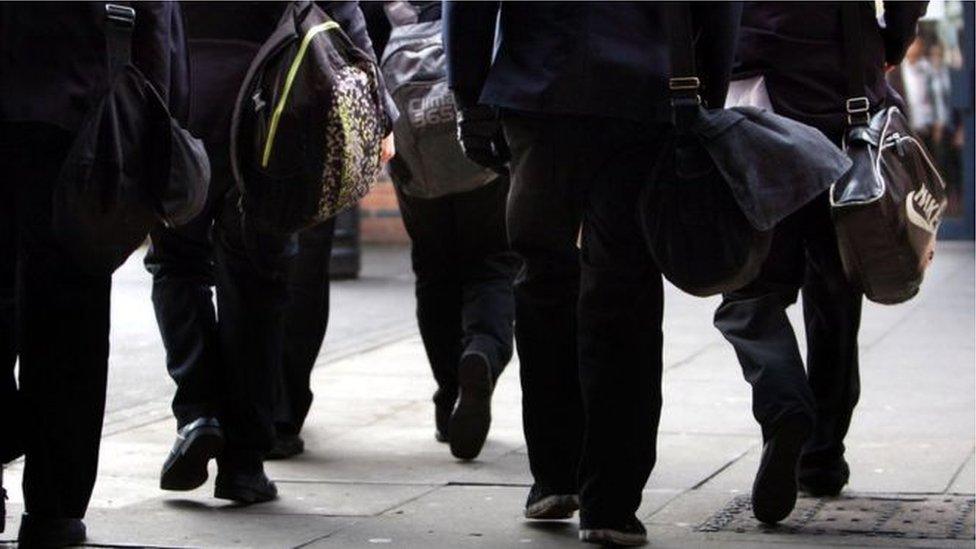Exam results: CCEA vows 'mistakes' will not be repeated
- Published
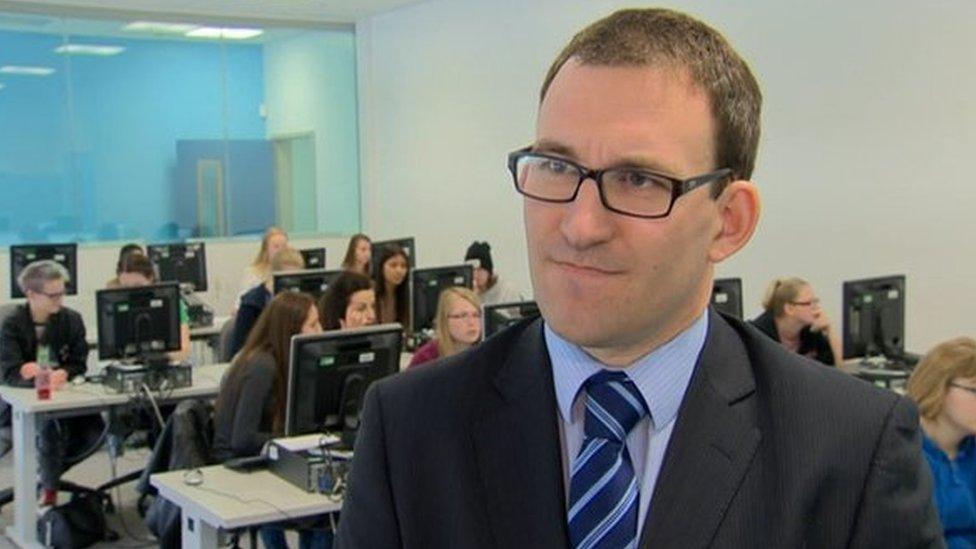
CCEA chief executive Justin Edwards says the exam body wiil ensure that "mistakes aren't repeated"
The chief executive of the exams board CCEA has apologised to pupils and teachers for how A-Level, AS and GCSE grades were awarded in 2020.
Justin Edwards said that there would be "lessons learnt" from the process.
He and other CCEA officials were questioned by members on Stormont's Education Committee on Friday.
On Monday, the Education Minister Peter Weir said results should be based on the highest grade obtained either through schools or awarded officially.
That was prior to GCSE results, but after pupils had received A-Level and AS grades standardised by CCEA.
Those results became hugely controversial after a substantial number of grades calculated by schools were lowered by the CCEA process.
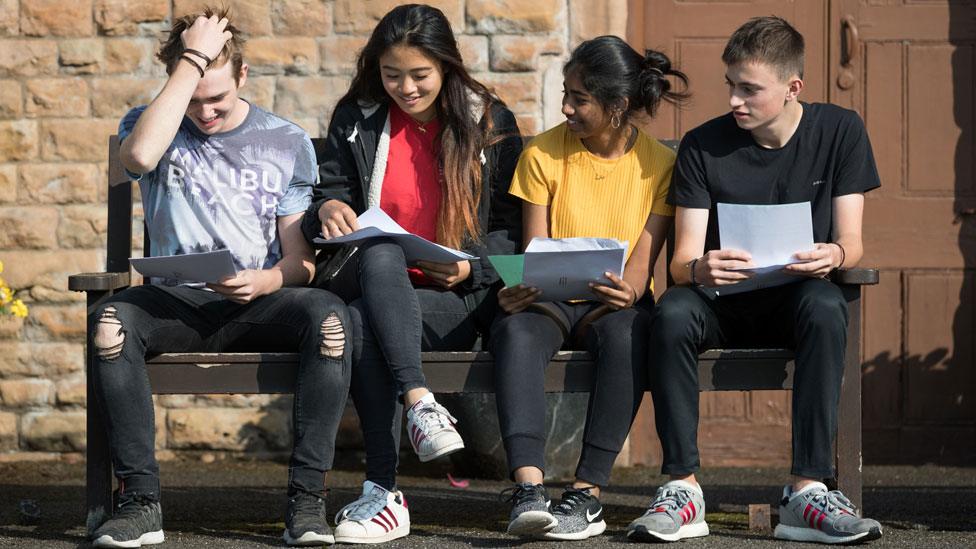
More than a third of initial A-level and AS level grades were lowered in the final results
The vast majority of pupils received their revised A-Level and AS grades on Friday.
However, about 70 results for pupils who have appealed the grade their school awarded them are outstanding.
In an opening statement to members, Mr Edwards said he was sorry.
Speaking to the Education Committee, Mr Edwards said: "It is clear that despite our best efforts the alternative arrangements may have led to greater concern among students, parents and teachers during an already stressful time and for this I apologise on behalf of CCEA to all students, young people, parents, teachers principals.
"The lessons learnt from this process will feed into such circumstances as are dealt with in the future and to ensure that mistakes aren't repeated."
"We were making vast changes to the exam system," Mr Edwards later said in response to a question from the DUP MLA Robin Newton.

How were A-level and GCSE grades awarded this year?
Following the cancellation of A-level and AS-level exams in March due to coronavirus, CCEA was instructed by the education minister to ensure the calculated results in 2020 were broadly in line with performance of recent years.
CCEA asked teachers to give a predicted grade for their pupils and then rank them in order within their class.
It then used other data to standardise the results. For A-levels, the model used pupils' AS-level results and resit data.
AS and A-level results issued last Thursday were initially based upon teachers' predictions and then standardised through the use of an algorithm.
However, more than a third of those estimated grades allocated by teachers were lowered in the final results by the examination body CCEA.
On Monday, Peter Weir announced GCSEs taken with exams body CCEA - which provides about 97% of GCSE exams in Northern Ireland - would not be subject to standardisation.
Later that day, the minister announced a U-turn on how A-levels would also be graded, with pupils now being awarded the highest grade obtained either through teacher prediction or awarded officially.

'Massive effort'
Speaking to the committee via audio link, Trevor Carson, the chair of CCEA, said he had been "impressed beyond belief" by the efforts all CCEA staff had put in.
"Throughout council, the organisation and all staff I believe have acted with total professionalism and integrity," he said.
"We have always kept the interest of young people and their future as our guiding principle."
Mr Edwards' apology was welcomed by the committee chair, Alliance's Chris Lyttle.
However, committee deputy chair Karen Mullan of Sinn Féin, while also welcoming the apology, said that the education minister was also responsible.
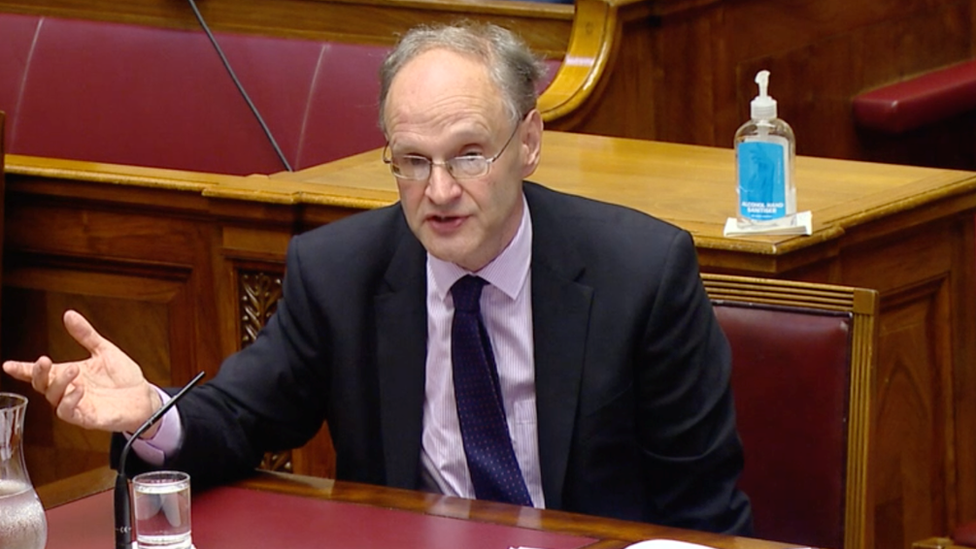
Education Minister Peter Weir had previously said a "robust" appeals system was the best way for A and AS-level students to resolve their issues with grades
"There was an agenda this year to ensure that the distribution of grades followed a similar pattern to that of previous years, irrespective of the fact that 2020 was unlike any other year" she said.
"That was the task that CCEA was set by the minister and it is he who must bear the responsibility for the outcome."
Both the SDLP's Justin McNulty and the UUP's Robbie Butler asked about whether examiners who would have been used by CCEA and lost work when exams did not take place would be paid a fee.
Mr Butler pointed out to Mr Edwards that examiners in some other parts of the UK had been given furlough or retainer payments.
"If we don't get it right this year, where are our examiners going to be next year?" he asked.
"If you don't look after them this year Justin, you're not going to have them next year."
However, Mr Edwards said that "unfortunately" he needed approval from the Department of Education (DE) to pay examiners.
- Published17 August 2020
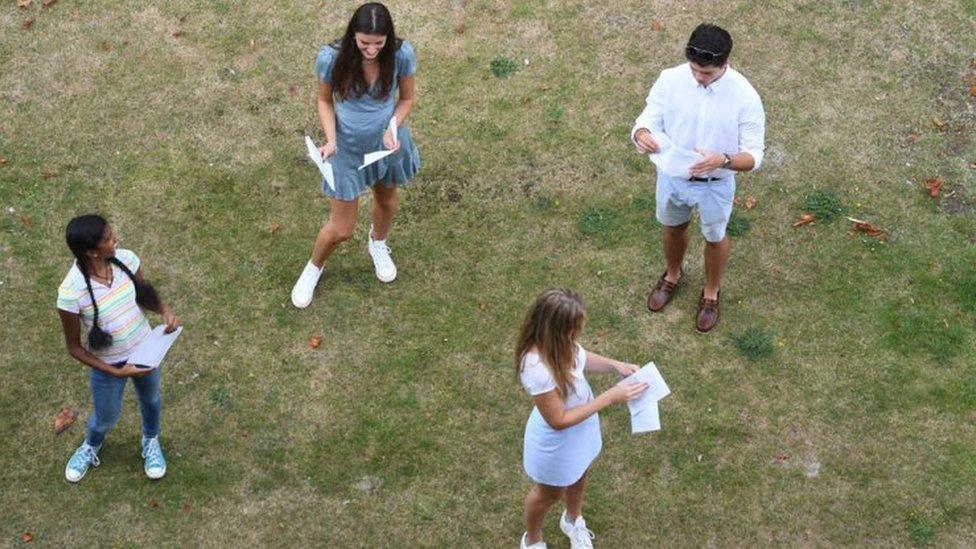
- Published16 August 2020
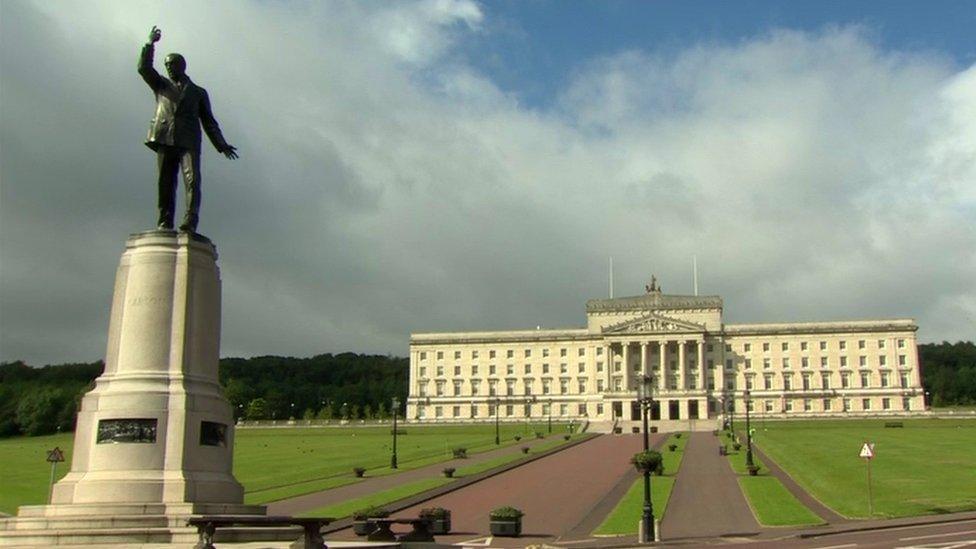
- Published20 August 2020
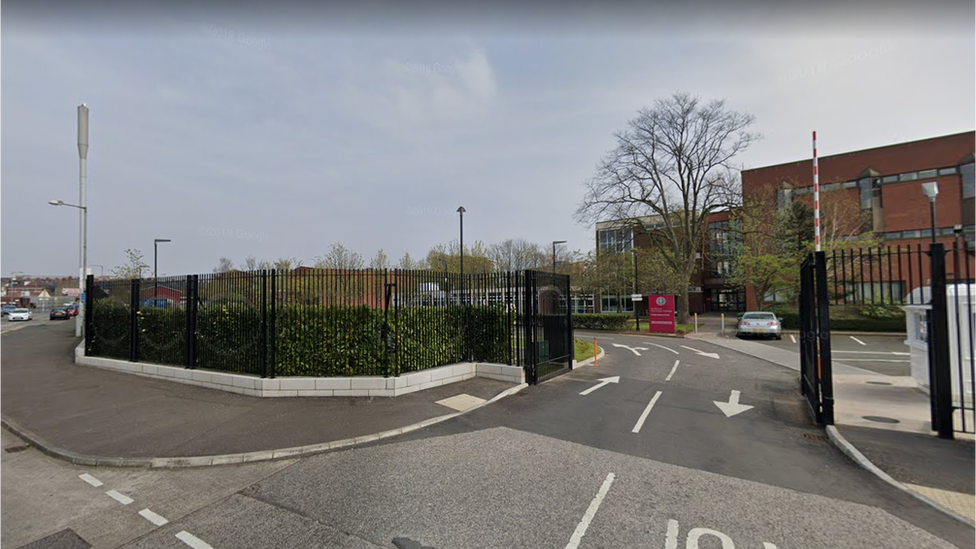
- Published17 August 2020
